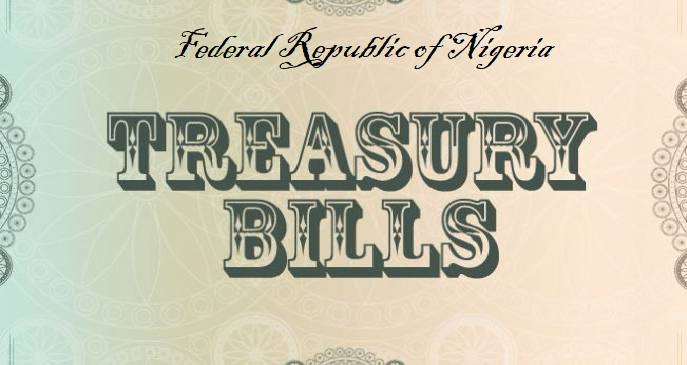
According to recent data from the Nigerian Securities and Exchange Commission, only 22% of Nigerians have investments outside of traditional savings accounts, even though inflation has averaged 18.3% in 2024! From government bonds to real estate and emerging fintech opportunities, understanding where to invest your money in Nigeria requires careful consideration of risk tolerance, investment goals, and market conditions.
In a country with persistent inflation and currency fluctuations, finding the right investment opportunities in Nigeria has become important for wealth preservation and growth. Whether you’re looking to grow your wealth gradually or seeking high-return investment vehicles, Nigeria’s diverse economic environment offers several options for investors at various income levels.
Where to Invest Money in Nigeria: Understanding Your Investment Goals
Here’s the thing: before you start throwing your hard-earned naira at any investment opportunity, you need to figure out what you’re actually trying to achieve. Are you saving for retirement? Looking to buy a house in the next five years? Or maybe you’re building an emergency fund? Your goals will determine where to invest money in Nigeria that’s right for YOU.
Defining Your Investment Timeline
I’ve learned through many failed savings that your investment timeline changes everything. When my daughter was born, I suddenly needed to think about school fees that were 15+ years away, not just next year’s vacation.
Short-term goals (under 2 years) require different investment vehicles than long-term ones. If you’re saving for a wedding next year, you probably shouldn’t be investing in land that might take 5+ years to appreciate significantly. Instead, you might want to look at Treasury Bills or fixed deposits that won’t lock up your money for too long.
For medium-term goals (2-5 years), you might consider a mix of slightly higher-risk investments like corporate bonds or dividend-paying stocks. These offer better returns than savings accounts while still being relatively stable.
Long-term goals (5+ years) give you more flexibility to ride out market fluctuations. This is where real estate, index funds tracking the Nigerian Stock Exchange, or even pension funds can really shine. Time is literally money when it comes to investments.
Assessing Your Risk Tolerance for Where to Invest Money
Look, I’m gonna be honest with you – I used to think I had a high-risk tolerance until I actually experienced my first major market drop. I couldn’t sleep for days watching my investments decline! That’s when I realized knowing your true comfort level with risk is crucial.
Risk tolerance isn’t just about personality – it’s tied to your age, income stability, and financial responsibilities. When I was single with no kids and a stable job, I could afford to be more aggressive with my investments. Now with a family depending on me, I’ve adjusted my strategy accordingly.
If you’re wondering where to invest money in Nigeria with minimal stress, you might lean toward government securities or fixed deposits. They won’t make you rich overnight, but they won’t give you heart palpitations either.
On the flip side, if you can stomach some volatility and have time on your side, the Nigerian stock market or real estate development projects might offer higher returns despite the ups and downs.
At the end of it all, be honest with yourself about how much risk you can truly handle. There’s no shame in being conservative with your investments if it means you’ll actually stick with your strategy long-term.
Let’s look into areas anyone either individuals or small business owners can invest their money in Nigeria:
1. Government Securities: Safe Investment Strategies
They’re basically short-term loans to the government that matures in either 91, 182, or 364 days. What makes them really good is the certainty—you know exactly what you’re getting and when. There are no nasty surprises. I felt relieved when my first T-bill matured exactly as promised, especially after my previous disaster with an “investment opportunity” from my mother’s friend that vanished into thin air!
How to Purchase Nigerian Treasury Bills
You can buy them through pretty much any commercial bank in Nigeria or through licensed broker-dealers. The minimum investment used to be ₦50,000, but some platforms now let you start with as little as ₦5,000 through secondary markets.
The rates fluctuate based on what the Central Bank of Nigeria is doing with monetary policy. Don’t just go with whatever your bank offers without shopping around. Different banks sometimes offer slightly different rates, and those small percentage differences add up over time. I lost out on some extra naira because I didn’t bother checking other options for my first few investments.
2. Real Estate Investment Strategies
Real estate has always been my not-so-secret love when figuring out where to invest money in Nigeria. There’s something deeply satisfying about owning something tangible you can actually see and touch, unlike those mysterious numbers in your stock portfolio.
My journey with real estate started small – a tiny piece of land on the outskirts of Lagos that I bought with my end-of-year bonus in 2015. Everyone thought I was crazy buying “in the bush” as they called it. Fast forward five years, and that area was suddenly “up and coming” with property values tripling! I wish I could say it was brilliant foresight on my part, but honestly, it was partly luck and partly research on infrastructure development plans.
Residential Property Investment Strategies
When it comes to residential properties, I’ve tried both the “buy and flip” and “buy and rent” approach with varying success. Let me tell you, being a landlord isn’t all passive income and relaxation! My first rental property taught me so many lessons about tenant screening the hard way.
Location remains the ultimate deal-breaker in Nigerian real estate. Properties in areas like Lekki, Ikoyi, and Victoria Island in Lagos or Maitama and Asokoro in Abuja continue to appreciate faster than other areas. But they also require significant capital to enter the market.
Mid-range properties in Ajah, Gbagada, and Magodo offer strong returns with lower initial investments. The trick is identifying these areas before they become popular. I always look for places where infrastructure development is happening or announced – things like new roads, bridges, or shopping centers.
Commercial Real Estate Opportunities
A few years ago, I took a risk and converted a residential property into office spaces in a mixed-use area. The rental income turned out to be almost double what I was getting from residential tenants! Commercial real estate typically offers higher yields but requires more specialized knowledge.
Retail spaces in busy commercial districts or near major institutions like universities can be gold mines if you get the location right. My cousin invested in a property near a major university in Ibadan and now rents to businesses serving students – the property has never been vacant for more than a month.
One mistake I made initially was underestimating renovation and maintenance costs for commercial properties. These tend to be higher than for residential units, and commercial tenants often have more specific requirements. Make sure you factor these costs into your calculations when determining where to invest money in Nigeria’s commercial real estate market.
REITs: Investment Strategies for Real Estates
After years of dealing with tenants who wouldn’t pay on time and endless maintenance issues, I discovered Real Estate Investment Trusts (REITs). These investment vehicles let you invest in real estate without actually managing properties yourself.
The Nigerian REIT market is still developing, but options like UPDC REIT and Union Homes REIT have given investors exposure to real estate portfolios managed by professionals. The returns might not be as high as direct ownership, but the hassle factor is virtually zero.
I started with a small REIT investment as part of my retirement planning, and I’ve been pleasantly surprised by the steady dividend payments. It’s worth considering if you want real estate exposure without becoming a landlord.
3. Nigerian Stock Market
You’ve probably heard stories about people making a killing on the Nigerian stock market – and others losing their shirts. When figuring out where to invest money in Nigeria, the stock market deserves serious consideration, but you need to approach it with your eyes wide open.
Getting Started with Nigerian Stocks
Before you dive in, you’ll need to open a brokerage account with a registered stockbroker and get a Central Securities Clearing System (CSCS) account. This might sound complicated, but most stockbrokers will handle the paperwork for you. You can start with as little as ₦10,000 with some brokers, making the stock market more accessible than you might think.
You’ll find that the Nigerian Exchange Limited (NGX) hosts companies across various sectors – banking, consumer goods, oil and gas, telecommunications, and more. When you’re new to the market, you might want to start with blue-chip stocks. These are shares of well-established companies with solid reputations and consistent dividend payments.
Dangote Cement, GTBank, Nestle Nigeria, and MTN Nigeria offer strong returns through share appreciation and dividends. But remember, past performance doesn’t guarantee future results – a lesson you’ll learn quickly in the stock market.
Where to Invest Money: Building a Diversified Stock Portfolio
You’ve probably heard the saying “Don’t put all your eggs in one basket.” Nowhere is this more true than in the stock market. Your portfolio should span different sectors to reduce risk. If you’ve got all your money in banking stocks and the banking sector takes a hit, you could be in trouble.
When considering where to invest money in Nigeria’s stock market, think about balancing growth and value stocks. Growth stocks are companies expected to grow faster than average, while value stocks are those trading below what analysis suggests they’re worth. A mix of both can help you weather different market conditions.
Something I wish someone had told me earlier: dividends can be just as important as price appreciation. Some Nigerian companies have impressive dividend yields ranging from 5% to 15% annually. These regular payouts can provide income while you wait for share prices to rise.
Exchange-traded funds (ETFs) like the Stanbic IBTC Nigerian Equity ETF or the NewGold ETF offer you an easy way to diversify across multiple stocks or even gain exposure to gold prices. They’re perfect if you don’t have the time or expertise to pick individual stocks.
4. Agriculture and Agribusiness Investments strategies
When you think about where to invest money in Nigeria, agriculture might not be the first thing that comes to mind. But let me tell you, this sector has enormous potential that most investors overlook. Nigeria’s agricultural sector contributes about 25% to the GDP and employs roughly 70% of the population, yet it remains severely underfunded and ripe with opportunities.
You don’t need to own a farm to invest in agriculture. There are numerous ways to get involved in this sector, from direct farming to investing in the agricultural value chain. Agricultural investments rarely align with financial markets, making them ideal for diversification.
Crop Farming and Livestock Ventures
Cassava, rice, maize, and cashew nuts offer strong local demand and export potential for direct farmers. You could start with a small plot of land and scale up as you gain experience. Many successful investors begin with a few hectares and gradually expand their operations.
Poultry farming offers quicker returns compared to crop farming. With proper management, you can start seeing returns within 6-8 weeks for broilers and about 5-6 months for layers. The initial investment can be significant, but the demand for poultry products in Nigeria consistently outstrips supply.
You’ll need to account for challenges like inadequate storage facilities, transportation issues, and climate uncertainties. These factors can affect your yield and profitability, so it’s important to have contingency plans. Working with agricultural extension workers and joining farming cooperatives can provide you with valuable knowledge and support.
Investment Strategies in Agricultural Processing and Value Addition
You might find that investing in agricultural processing offers better margins than primary production. Processing raw agricultural products adds value, extends shelf life, and increases pricing.
Take cassava, for instance. Instead of selling raw cassava, processing it into garri, flour, or starch can increase your profit margins significantly. The same applies to fruits that can be processed into juices or preserves, or grains that can be milled into flour.
When considering where to invest money in Nigeria’s agricultural sector, look at the entire value chain. Processing facilities, storage solutions, and transportation services are all critical components that offer investment opportunities with potentially attractive returns.
Agritech and Crowdfunding Platforms
Lacking time or expertise for farming? Agritech platforms now simplify agricultural investments. Farmcrowdy, ThriveAgric, and AgroPartnerships let you fund farms and earn profits without manual labor.
These platforms offer 15%–30% annual returns, depending on the crop, livestock, and investment duration. Start investing with as little as ₦50,000 on some platforms, making it beginner-friendly.
One thing to keep in mind: always research the platform thoroughly before investing. You want to ensure they have a track record of successful projects and transparent operations. Don’t be swayed by promises of unrealistically high returns – if it sounds too good to be true, it probably is.
Conclusion
Determining where to invest money in Nigeria requires careful consideration of your financial goals, risk tolerance, and investment horizon. While each option presented offers unique advantages, a diversified approach combining several investment vehicles often yields the best results. Nigeria’s economy, despite its challenges, continues to present significant opportunities for investors willing to conduct proper research and due diligence.
Choosing government securities, real estate, or stocks is important, but consistent investing and portfolio reviews drive wealth in Nigeria. Consulting a certified financial advisor ensures your investment strategy aligns with your goals and circumstances.
FAQ’s
Investment minimums vary widely across options. You can start with as little as ₦5,000 for some mutual funds, while Treasury Bills typically require ₦50,000 minimum. Real estate investments generally demand higher capital, though REITs and property crowdfunding platforms have made this more accessible with minimums of around ₦100,000.
Historically, entrepreneurship, real estate in prime locations, and well-timed stock investments have provided the highest returns. However, these also carry higher risks. Digital assets have shown substantial returns but with extreme volatility and regulatory uncertainty.
Yes, real estate remains relatively resilient in Nigeria, especially in major urban centers with housing deficits. However, location is crucial, and investors should conduct thorough research on area development plans, infrastructure projects, and population growth trends.
Beginners can invest in the Nigerian stock market by opening a brokerage account with a registered stockbroker, getting a CSCS account, and starting with either blue-chip stocks or ETFs. Many brokers now offer user-friendly mobile apps making the process more accessible.








